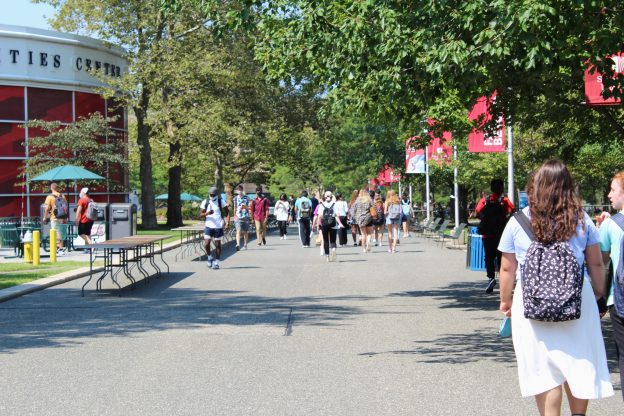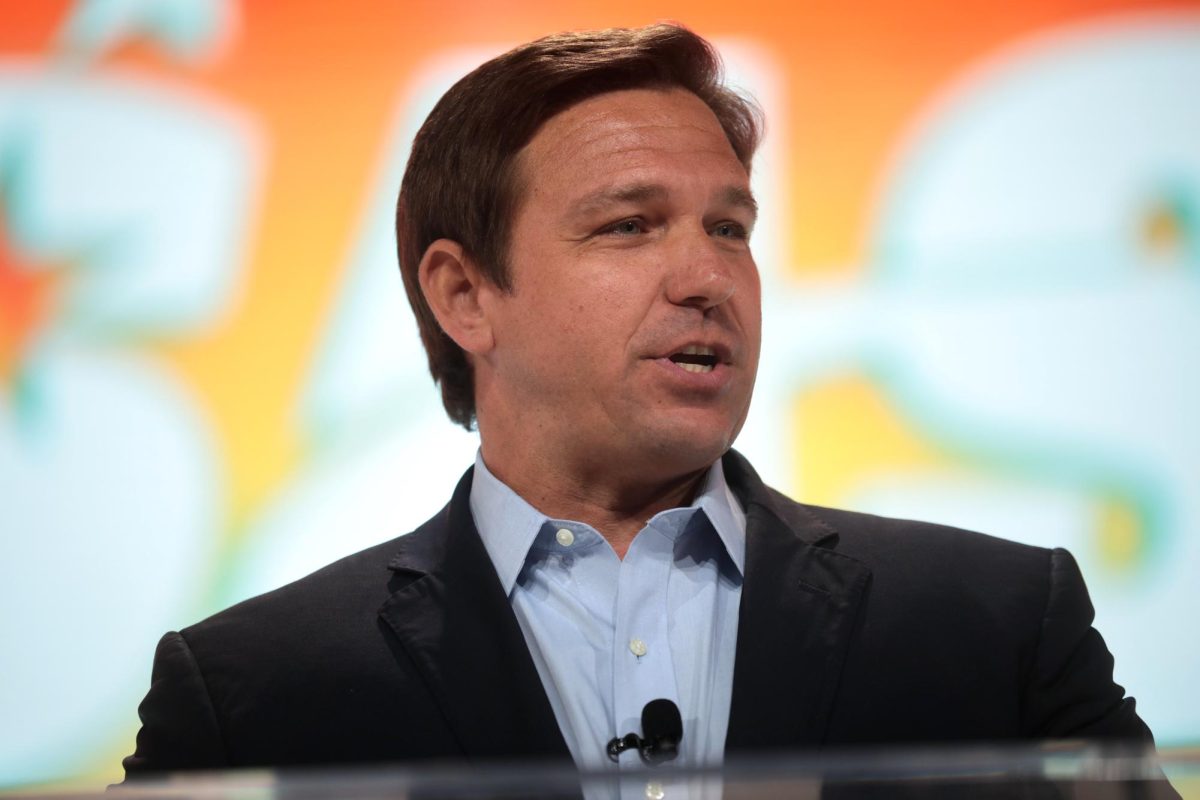
Xenia Gonikberg is a junior journalism and sociology double major with a minor in media arts.
By providing people with useful tools and opportunities that will benefit them once they graduate, education provides students with a road to job security and economic stability.
Unfortunately, education is a privilege because of large opportunity inequalities across socioeconomic classes, meaning that lower-income people must compete for the same limited resources as higher-income people for school and job prospects.
Because of this disparity, lower-income students face major barriers to education and internships, and finding jobs in a competitive and crowded market, even with a master’s degree, is becoming increasingly challenging.
In a country that prioritizes education in order to be successful, it is unfair that getting an education is so financially difficult. It basically sets people up for failure if they can’t afford to go to college. Therefore, it continually reinforces existing inequities within our society by giving opportunities to those who can afford it while limiting opportunities for those who can’t.
Many jobs nowadays require a master’s degree to stand out in a competitive field and that isn’t workable for many people because it means taking out loans or paying more money just to get their master’s degree.
It also limits job flexibility because getting a master’s degree can pigeonhole you in a certain career path, so it is unappealing for people who are unsure of what they want to pursue or people who don’t want to pursue conventional career paths.
Despite an increase in master’s program enrollment in 2020 over the previous year, only about 9% of Americans have a master’s degree, and their employability has grown by less than 3%. While obtaining a master’s degree is an excellent method to set yourself apart from other job applicants, it is only workable for a select few who are willing and able to incur more debt by attending graduate school.
Because of the high cost of education, many students are becoming increasingly disillusioned with it. With around 65 percent of students graduating with student loan debt, it is the second most common sort of debt.
The growing educational divide is making it more difficult for people to attend undergraduate or graduate school because of the large amounts of student debt they accumulate.
With 43 million people in some sort of financial obligation because of their education, student debt is the second most common type of debt that people in the United States accrue. Student loan debt has become so onerous for some that they cannot purchase a home or raise a family because of the high cost of repaying the debt.
However, the competition for internships is another reason education is so difficult to get for the vast majority of people.
Because paid internships are uncommon, it traps many students with unpaid internships or cannot get one because they cannot afford to devote enough time to one without receiving financial compensation. Meanwhile, wealthier students can take advantage of these internships, benefiting from a system that is skewed in their favor.
Conversations regarding the ethics of unpaid internships and the competition that students face as they enter the industry are becoming increasingly common, bringing up critical issues such as wealth inequality in education and the exclusion of lower-income students from renowned opportunities.
While some organizations and firms have reevaluated their internship practices, many have not. As a result, offering only unpaid internships provides students unequal access, forcing some to struggle harder to pursue a field they have already spent thousands of dollars trying to get into.
Education should be a right, not a privilege, especially in the United States. The fact that there are so many impediments to education and career success reveals a larger issue with the country’s education and job systems.
Because so many students are competing for limited resources, those who already have a leg up will typically be prioritized over those who don’t, resulting in less diversity in the workforce and a wider income gap because low-income students have a harder time accessing the same resources as wealthier students.
The best way to combat this financial gap in education is to promote and invest in free college and educational alternatives, like community college and vocational training. That way, students who cannot afford traditional college are neither limited to what they can study or their job prospects.


















